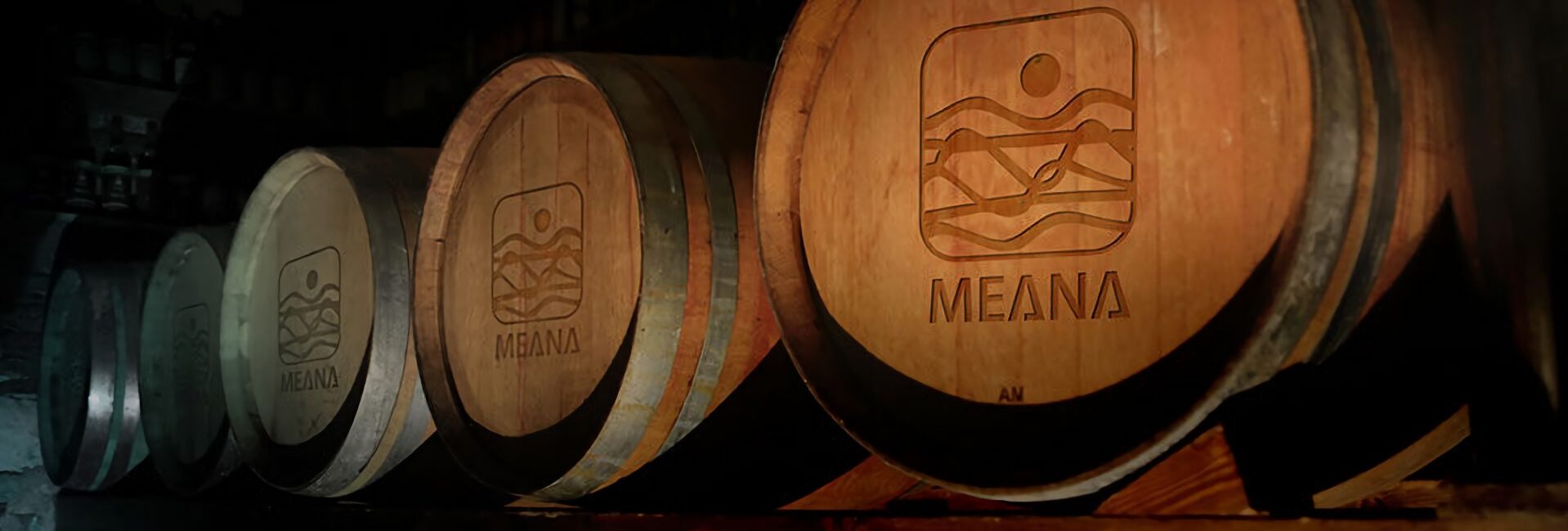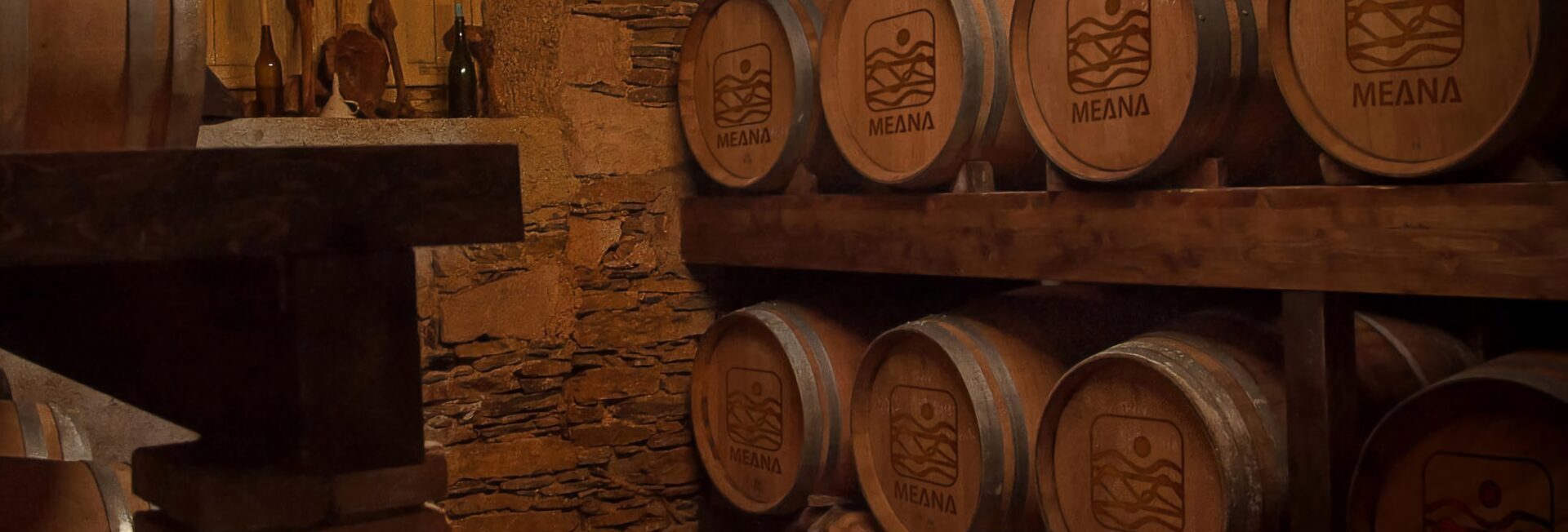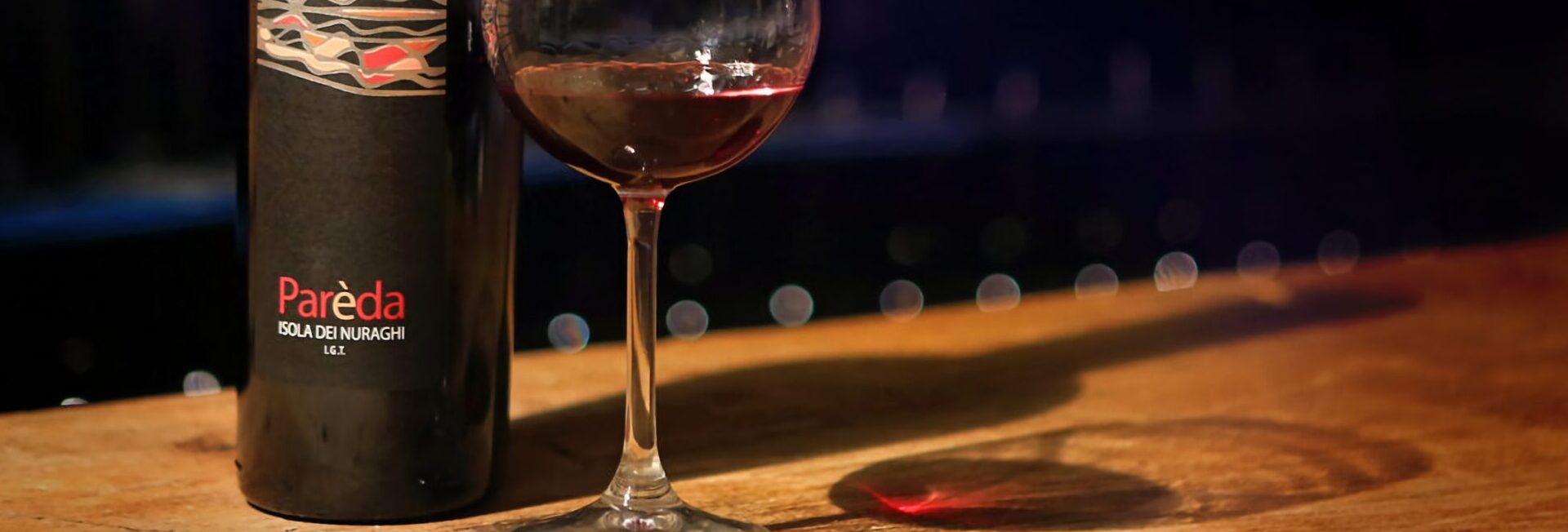



The “Meana – Terra del Mandrolisai” winery is located in the territory of the same name in the heart of Barbagia, within the Mandrolisai region. It is founded on a strong passion and a fundamental desire to develop the potential of the grapes typically found in this area of noble winemaking tradition.
Their cultivation is based on a system of vineyards passed down over generations, which consists solely of vines typical to the area. They are carefully tended to and left open to elements of nature. The company aims to gather a sound knowledge of traditional winemaking, to capture intense aromas and flavours in high quality wine.
The salubrious nature of the isolated mountainous region of Gennargentu provides a clean and unspoilt ecosystem, optimal for the development of an entirely natural production method. Such conditions facilitate the company mission of eradicating the use of pesticides, in order to better preserve the grapes’ natural, fresh aromas. They are carefully picked and selected to undergo a closely supervised transformation process, in order to create a wine that is both rich in quality and fundamentally “organic” in its natural constitution.
From this basic philosophy, the Mandrolisai wine is born. It is a wine that fully embodies the richness of the nature in this area; a generous and fragrant mountain wine.
The Cellar
The processing of the grapes, and the ageing and conservation of the wines are all delicate phases. They are fundamental in obtaining a quality wine, capable of conveying the unique characteristics of its flavours and aromas.
The cellar is divided into sections: the first is a modern area where the initial processing stages take place, with the aid of modern technology. The freshly picked grapes are transported to the winery, where they are immediately pressed, de-stemmed, divided by typology, and placed into special steel containers for fermentation. The fermentation process develops naturally, at constant temperatures, over 12-18 days, depending on the blend of grapes. The techniques employed are designed to enhance their flavours and aromas.
Once fermentation is complete, the wines are transferred to the maturation area. They remain divided by typology at this stage. This area is a traditional underground schist stone structure, which naturally maintains a constant temperature and humidity level. Here, the wines continue the ageing and refinement process under careful supervision and regular inspection. Each wine is placed in an oak, chestnut or steel container, depending on its typology and characteristics.
After the required maturation, the wines are bottled, where they undergo a further ageing process, before being made available for sale.
The Vineyards
The vineyards extend across the rolling hills of Gennargentu, at an altitude of approximately 700 metres above sea level, south-west of Meana Sardo. The land is defined by schistose mixtures, which are particularly suited to vine cultivation. The rather small quantities of grapes produced by these gnarled and twisted hundred year old vines is made up for by their abundance of intense aromas, typical of the spontaneous essences of these areas. The composition of this schistose soil, together with aromas and essences carried by the wind, and the sun that beats down over the rich and varied mountainous vegetation, lend the grapes and wines the characteristic flavours and scents that render them unique, even among Sardinian wines.
The vines, which were planted between 60 80 years ago, have been grown from saplings and worked mainly by hand. They are individually cared for, according to the specific conformation and necessity of each vine, so as to produce relatively small quantities, which do not exceed the average of 30 40 hl/ha. Such reduced quantities guarantee high quality grapes, as well as the longevity of the vineyards themselves.
The vines indigenous to the area of Mandrolisai are Cannonau, Monica and Bovale, among other local species. In order to guarantee and safeguard the distinctive qualities of these vines, the grafting process is constantly carried out on site, using scions drawn from the ageing vineyards. In addition, the prevailing climatic conditions ensure the area is well ventilated, sunny and mostly dry, which allows for almost no safeguarding interventions, and as such guarantees the maximum authenticity of the grapes.
